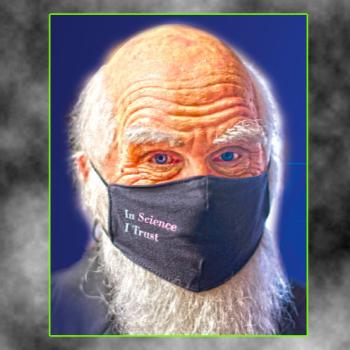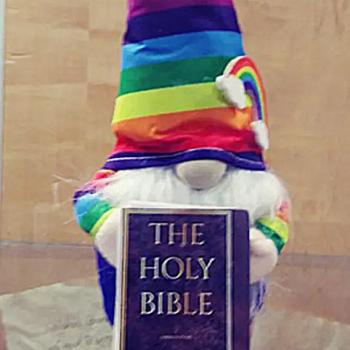AHEAD of the 2020 US presidential election, its was reported here that the Democrats were ‘again doubling down on religion’ and that the Biden campaign was making an ambitious play for white evangelical Protestants and Mormons, two loyal Republican groups.
Author of the piece, Daniel Cox, thought it odd that the Democrats were mostly ignoring:
A massive group of voters who are becoming an increasingly crucial part of their base: people who don’t have any religion at all. Right now, voters with no religious affiliation look like they might back Biden in record numbers.
According to a poll conducted by the Pew Research Center in early August, 72 percent of nonreligious voters – a group that includes people who identify as atheists, agnostics and nothing in particular — are planning to support Biden.
That’s 4 percentage points higher than the 68 percent who supported Hillary Clinton in 2016. And that’s a big deal, because despite being frequently overlooked, nonreligious people make up a sizable part of the electorate. An analysis of validated voters by Pew found that religiously unaffiliated voters accounted for one-quarter of the electorate in 2016, and 30 percent in 2018.
While pointing out that nonbelievers were a difficult demographic to reach – for one thing they don’t gather in great numbers in churches – the Trump administration inadvertently:
Mobilized some religiously unaffiliated voters in unprecedented ways. Although Trump is not an overtly pious figure, he’s embraced a vision of American culture that privileges Christian identity and heritage. That’s a view that most nonreligious Americans reject, which is likely a part of the reason that their support for Biden is so high, despite the campaign’s minimal outreach efforts.
This echoes much of what The Friendly Atheist, Hemant Mehta said in an April, 2020, video.
.
In his article, Cox quoted David Campbell, a political science professor at the University of Notre Dame who studies religion and politics, as saying:
I think in future elections we’re going to see more of an effort to reach a secular voting bloc and the reason is simply that they’re continuing to grow. It’s too ripe a target for politicians to ignore.
Cox write that during the past ten years, the share of Americans who identify as Christian has fallen by 12 percentage points, while the share of people who say they have no religious affiliation is up 9 percentage points. That breaks down to 1 in every 4 Americans who are now religiously unaffiliated, including 40 percent of millennials. Meanwhile, there’s no sign that nonreligious Americans are returning to religion as they get older.
These shifts stand to benefit Democrats more than they benefit Republicans. Nearly two-thirds of religiously unaffiliated Americans identify as Democrats, a sharp increase from just a few decades ago, when the (much smaller) nonreligious population was fairly evenly split between the parties. And in 2018, a record-high share (75 percent) of religiously unaffiliated voters supported Democratic candidates.
Cox added:
Additionally, anger at Trump is motivating many nonreligious voters to get more politically involved. A majority (56 percent) of religiously unaffiliated Americans — including nearly three-quarters (73 percent) of atheists and agnostics — say Trump has been a ‘terrible’ president.
And there are signs that religiously unaffiliated people have become more politically engaged since Trump was elected – one survey conducted in 2018 found that nonreligious people were more likely than their religious peers to have attended a rally or contacted a political official.
Also alluded to in Cox’s piece was Sarah Levin, a political consultant who focuses on secular groups and communities. She said Democrats shouldn’t see this election as a sign that they can take nonreligious voters for granted. Secular people have values too, she said, and hearing politicians and parties speak to those values can motivate them to get more politically involved.
Levin said there are ways to make appeals to secular voters that can also speak to religious Democrats – for example, emphasising the importance of protecting religious minorities and nonreligious people through the separation of church and state, or focusing on science-based issues like climate change.
That kind of big-tent strategy isn’t without risk, though, according to Campbell:
The last thing Democrats want is to be portrayed as the godless party, because that would probably turn off a lot of voters.
But he added that Democrats may be missing a big political opportunity if they don’t start thinking about ways to engage with nonreligious voters as a group.
Until parties and politicians start talking to secular voters as a bloc, voters won’t see themselves that way either. What you have on the right with white evangelical Protestants is a distinct group that can be courted and discussed. The left hasn’t figured out how to do that with nonreligious voters. But we could see more efforts in that direction going forward.
This issue was picked up the National Catholic Reporter yesterday (Tuesday) which added that secular voters are the most solidly Democratic voters – and they mattered a lot in the battleground states. It quoted Ryan Burge, a political scientist at Eastern Illinois University, as saying:
Religiously unaffiliated voters are key in every single state, now. They are 30% of the population and shifted pretty significantly to the Democrats this time.
Agnostic and atheistic voters – already reliable Democratic voters – also intensified their support. Agnostic Americans went from 67.6 percent to 77 percent in favor of the Democratic presidential nominee while atheists went from 77.2 percent to 84 percent.
Said John Green, a retired political scientist and former director of the Ray C Bliss Institute for Applied Politics at the University of Akron in Ohio.
In all the close states, the unaffiliated made up a significant portion of the Biden vote. Without those voters it’s hard for me to see how Biden would have won the close states that he won.
Also, according to Green, by definition of being nonreligious, secular voters value philosophical and scientific authorities over religious ones, which could explain their alignment with Biden and Democrats on issues like the COVID-19 pandemic, as opposed to faith-based groups which have chafed at some of the restrictions on religious gatherings.

 I’d love a cup of coffee
I’d love a cup of coffee













